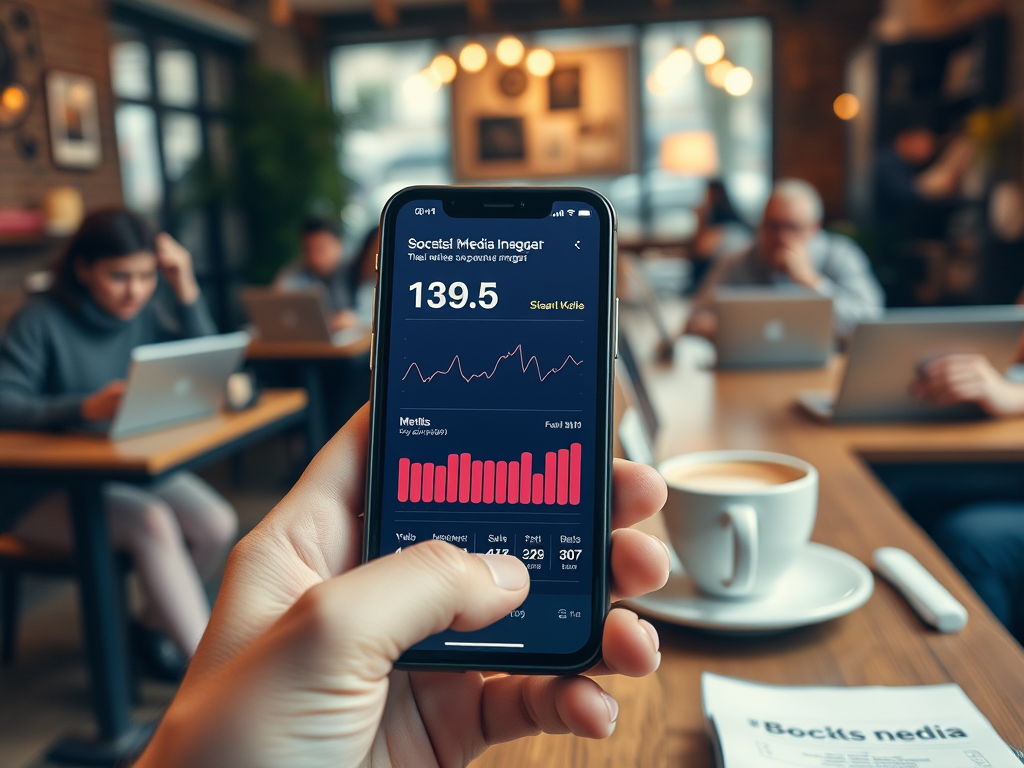In today’s digital landscape, content marketing plays a pivotal role in shaping brand visibility and customer engagement. With an abundance of data at our fingertips, measuring the success of any content marketing initiative has never been more critical. Companies invest significant time and resources into creating content, so knowing how to evaluate its effectiveness can lead to better strategic decisions and improvements in marketing efforts. The right metrics and tools can transform your content strategy from guesswork into a powerhouse of insights. In essence, effective measurement defines whether content serves its intended purpose or drifts into the void. By establishing a framework for measuring success, businesses can navigate the complexities of digital marketing with clarity and confidence.
Understanding Content Marketing Metrics

Content marketing operates on various levels, and understanding the importance of metrics is fundamental for any marketer. Metrics serve as the guiding stars for effective strategy implementation and improvement. They’re not merely numbers but represent the pulse of your audience’s interactions with your content. By understanding these figures, marketers can tailor their approaches to align better with audience expectations. The right metrics can reveal whether your content is engaging your target demographic or not. Within this framework, you’ll begin to build a clearer vision of your content’s performance over time.
Key Performance Indicators (KPIs) for Content Marketing

When measuring content marketing success, focusing on the right KPIs is crucial to gaining meaningful insights. Here are some foundational metrics to consider:
- Traffic Metrics: Content reach is often a primary indicator of success. Analyzing how many visitors your content attracts can help you understand its appeal.
- Engagement Metrics: Engagement shows how users interact with your content. Metrics such as time spent on the page, bounce rate, and social shares are critical for determining resonance.
- Conversion Rates: Ultimately, the content should drive specific actions, whether signing up for a newsletter or making a purchase. Tracking these conversion rates is vital for effectiveness.
Tools for Measuring Content Marketing Success
Various tools can assist in measuring the success of your content marketing efforts. These tools offer analytics and insights that are crucial for performance evaluation. Here’s a summary of essential tools:
| Tool | Purpose |
|---|---|
| Google Analytics | Tracks user behavior, page views, and conversion metrics. |
| Social Media Analytics | Provides insights into engagement, shares, and demographics. |
| Content Management Systems (CMS) | Offers built-in analytics capabilities for measuring individual content performance. |
Understanding how to leverage these tools effectively can lead you to discover hidden insights. For instance, Google Analytics provides a deep understanding of user flow through your website. Social media analytics can illuminate engagement trends, helping you cater content to your audience’s preferences. Meanwhile, a good CMS will allow you to track the success of each individual piece of content easily.
Analyzing Data and Making Adjustments
Once you have gathered data, the next step is analysis. Understanding what the numbers mean can empower you to make informed decisions for future content marketing strategies. This process requires a meticulous approach to identifying trends that could yield fruitful results. By regularly revisiting your analytics, you can pinpoint what types of content perform best and when your audience engages most. For example, if specific topics consistently yield higher engagement rates, consider focusing future content around similar themes.
- Identifying Trends: Look for patterns in your data that can guide content creation.
- A/B Testing: Experiment with different styles and formats to see which resonates best.
- Feedback Loops: Create mechanisms for reader feedback to improve content effectively.
Conclusion
Measuring the success of content marketing is essential for refining strategies and achieving business objectives. By analyzing the right metrics and utilizing effective tools, marketers can gain valuable insights that lead to improved engagement and conversion rates. Knowing whether your content resonates with your audience defines whether you can allocate your resources more efficiently. Ultimately, a data-driven strategy minimizes guesswork and focuses on tangible results. For any marketer, embracing metrics is not just a trend; it’s a game changer.
Frequently Asked Questions
- What are the most important metrics to track in content marketing? The most critical metrics include traffic numbers, engagement rates, and conversion rates.
- How often should I review my content marketing performance? Regular reviews, ideally on a monthly or quarterly basis, can help identify trends and make necessary adjustments.
- Can social media engagement impact SEO? Yes, increased social media engagement can lead to higher visibility and potentially improve SEO rankings by driving more traffic to your content.
- How can I improve my content conversion rates? Consider refining your calls to action, enhancing content relevance to your audience, and optimizing for user experience.
- What is the role of A/B testing in measuring content success? A/B testing allows marketers to compare different versions of content to see which performs better, providing insights for future strategy adjustments.
